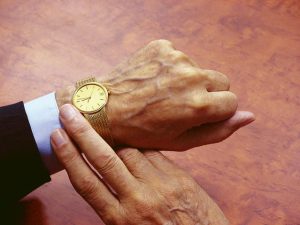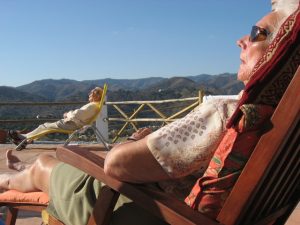Are there health advantages to remaining in the labor force longer? The clinical research study is undetermined, though it has the tendency to tilt toward “yes.” This is especially noticeable amongst individuals who find work satisfying in the first place, and who have the tendency to be office workers, teachers and others whose work environment is not, say, a factory or made up of drake low loaders on hire at a construction site. More so than previous generations, child boomers are continuing to work past their early 60s, and frequently well beyond. This often suggests delaying retirement from a long-term job, but it can also include some type of bridge task, part-time work or self-employment. It ends up that, nowadays, older Americans who retire – in the sense of entirely withdrawing from the paid labour force – are progressively in the minority.
 “Exactly what is the advantage of work? Activation of the brain and activation of social media networks might be vital,” Nicole Maestas, an associate teacher of healthcare policy at Harvard Medical School, stated in an interview. Scientists have actually long presumed that well-read and much healthier individuals take advantage of working after a particular age. Recently, nevertheless, scholars and retired people themselves have been exploring the question with potential ramifications for both employees and policy makers: Is a job a force for keeping older individuals psychologically and physically healthy?
“Exactly what is the advantage of work? Activation of the brain and activation of social media networks might be vital,” Nicole Maestas, an associate teacher of healthcare policy at Harvard Medical School, stated in an interview. Scientists have actually long presumed that well-read and much healthier individuals take advantage of working after a particular age. Recently, nevertheless, scholars and retired people themselves have been exploring the question with potential ramifications for both employees and policy makers: Is a job a force for keeping older individuals psychologically and physically healthy?
Mark Truitt, 70, a long-time teacher in Pembroke Pines, Fla., weighs in on the “yes” side. He has actually tried to retire four or five times but keeps returning – part-time. “I know a variety of teachers who retire and do not do anything they believe is of value, and they enter into a decline quite quick,” he stated. Mr. Truitt now puts in about 10 hours a week as a specialist with the Council for Educational Modification, a Florida not-for-profit that motivates service executives and principals to team up to enhance school management. He said, “I’m enjoying the heck out of it.” Academics who have studied the connection between health and infiltrating the senior years state this: Work offers a routine and function, a reason to get up in the early morning. The office is a social environment, a neighborhood. Depending upon your profession, doing your job includes engaging with cubicle mates, managers, subordinates, union siblings and sis, providers, suppliers and consumers. The reward for employees to invest in their health while employed is strong.
Gabriel Heller-Sahlgren, the director of research study at the Center for the Research of Market Reform of Education and Ph.D. student at the London School of Economics stated, “In the beginning when you retire, it may feel more like a vacation. But then you question what to do with the time. You realise that you have lost the perks of paid lunches, the ability to meet and expand your network of colleagues and friends, and you lose your business car (even if it does have that GPS fleet tracking device attached).” If the engagement and connections from a job – in addition to the earnings – can add to a much healthier older population, the ramification is that policy makers ought to make it much easier for older employees to take part in paid work. “This does not mean political leaders need to ask individuals to ‘work till they die,'” Mr. Heller-Sahlgren stated. “They ought to just get rid of disincentives to working.”
Mr. Heller-Sahlgren took a look at the brief and longer-term results of retirement on psychological health. His database– drawn from the Study of Health, Ageing and Retirement in Europe over numerous years– discovered that there was no short-term effect of retirement on psychological health, which has been specified as a series of depressive propensities (such as cravings, concentration, tiredness and so on) to depression. The study results, Mr. Heller-Sahlgren stated, recommend that the unfavorable impacts of retirement begin to appear after the very first couple of years of stopping from work. The outcomes, he discovered, do not vary by sex or between individuals with various instructional and occupational backgrounds.
“Relationships rule,” stated William Wells Jr., who is 72 and owns a consulting service in Eden Grassy field, Minn., that focuses on ethnic and racial variety. Mr. Wells cut down on his hours numerous years ago when his granddaughter was born, but the 15 to 20 hours he approximates he invests in work do not count networking and heading out to supper with possible customers. He stated, “I’m still doing 10 hours approximately simply networking and relationship building.”
Sharon Wills, who is 65, still works for the staffing business, Kelly Provider, with which she invested her profession since 1986 stated, “I do not do well staying in the house.” She resides in Amarillo, Tex., and she retired in 2011, taking a year off – and not enjoying it. When the team management of the business called and asked if she wished to end up being a “ninja” – somebody who assists branches or places around the nation – she jumped at the chance. “There is a lot to learn about our service,” Ms. Wills stated, including the opportunity to continue taking in brand-new abilities. “The method we hire now is not the method we hired 25 years back.”
In spite of what might look like apparent advantages, scholars cannot make conclusive declarations about the health results of working longer. Especially in industries of more manual labour, such as manufacturing factories or crane hire companies, working may be more detrimental to a retiree’s health than beneficial. The research study is naturally challenging: just as retirement can affect health, so can health impact retirement.

